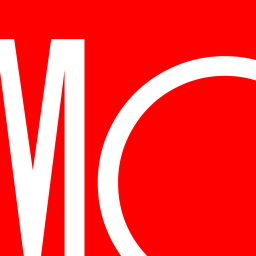Improving Company Performance Through Effective Middle Management

Table of Contents
The Importance of Strong Leadership Skills in Middle Management
Middle managers are the linchpin connecting senior management's strategic vision with frontline employees' daily execution. They translate overarching goals into actionable plans, providing guidance and support to their teams. Strong leadership skills are not optional; they're essential for bridging this critical gap and driving success.
Developing Essential Leadership Qualities
Effective middle managers possess a diverse skillset. Key leadership qualities include:
- Communication: Clear, concise, and consistent communication is paramount. This includes both verbal and written communication, ensuring everyone understands expectations and progress.
- Delegation: The ability to effectively delegate tasks empowers employees and frees up the manager's time for strategic initiatives.
- Motivation: Inspiring and motivating teams requires understanding individual needs and providing opportunities for growth and recognition.
- Conflict Resolution: Addressing conflicts fairly and efficiently maintains a positive and productive work environment.
- Mentorship: Guiding and supporting team members' development fosters loyalty and enhances overall team performance.
- Decision-Making: Making timely and informed decisions is crucial for navigating challenges and seizing opportunities.
- Strategic Thinking: Understanding the broader company goals and aligning team efforts accordingly is essential.
Investing in leadership training and development programs is crucial. These programs can equip middle managers with the necessary skills and tools to excel in their roles. Examples of effective leadership styles include transformational leadership, which focuses on inspiring and motivating employees towards shared goals, and servant leadership, prioritizing the needs and development of team members.
Effective Communication Strategies for Middle Managers
Communication is the lifeblood of any successful team. Middle managers must adopt a multifaceted approach:
- Regular Team Meetings: Provide updates, address concerns, and facilitate collaboration.
- One-on-One Meetings: Offer individual support, provide constructive feedback, and address personal challenges.
- Email Communication: Use email for disseminating information efficiently, but remember to keep messages concise and clear.
- Active Listening: Truly listen to employee concerns, understand their perspectives, and respond thoughtfully.
- Feedback Mechanisms: Implement regular feedback systems (surveys, performance reviews) to gauge employee satisfaction and identify areas for improvement.
Empowering and Motivating Teams for Peak Performance
A positive and productive work environment is crucial for peak performance. Middle managers play a vital role in fostering this culture by empowering and motivating their teams.
Strategies for Employee Motivation
Motivational theories, like Maslow's hierarchy of needs and Herzberg's two-factor theory, offer valuable insights into employee motivation. Practical motivational techniques include:
- Recognition and Rewards: Acknowledging and rewarding achievements, both big and small, fosters a sense of accomplishment and boosts morale.
- Opportunities for Growth: Providing training, mentorship, and opportunities for advancement demonstrates investment in employees' futures.
- Empowerment: Delegating responsibility and allowing employees autonomy fosters ownership and increases engagement.
- Fostering Teamwork: Building strong team dynamics encourages collaboration and shared success.
- Creating a Positive Work Culture: Fostering an environment of respect, trust, and open communication significantly increases employee satisfaction and productivity.
Effective Delegation and Accountability
Effective delegation is not simply assigning tasks; it's about empowering employees to take ownership. This involves:
- Clear Task Assignments: Providing detailed instructions, necessary resources, and realistic deadlines.
- Setting Clear Expectations: Communicating performance standards and desired outcomes.
- Monitoring Progress: Regular check-ins provide support and address potential roadblocks.
- Constructive Feedback: Providing regular feedback, both positive and constructive, helps employees learn and grow.
- Accountability: Holding employees accountable for their work while providing support and guidance.
Optimizing Processes and Driving Efficiency
Middle managers are often on the front lines of identifying inefficiencies. They can play a crucial role in streamlining workflows and improving operational processes.
Process Improvement Techniques
Methodologies such as Lean and Six Sigma provide structured approaches to process optimization:
- Lean: Focuses on eliminating waste and improving efficiency through continuous improvement.
- Six Sigma: Aims to reduce defects and variability in processes.
- Data Analysis: Using data to identify bottlenecks and inefficiencies is essential for informed decision-making.
Successful process optimization initiatives often involve collaboration between middle managers and their teams. By identifying areas for improvement and implementing solutions, middle managers can significantly enhance efficiency and reduce costs.
Utilizing Technology to Enhance Efficiency
Technology can greatly assist in streamlining workflows and improving communication. Tools like project management software, communication platforms, and data analytics dashboards can significantly improve efficiency. Crucially, employees must be adequately trained in the use of these technologies to maximize their benefits.
Measuring and Tracking Performance: Key Metrics for Middle Management
Setting clear, measurable goals and tracking progress is crucial for evaluating the effectiveness of middle management and the overall success of the team.
Key Performance Indicators (KPIs)
Relevant KPIs for middle management include:
- Employee Satisfaction: Measuring employee morale and engagement.
- Team Productivity: Tracking output and efficiency.
- Project Completion Rates: Monitoring on-time and within-budget project delivery.
- Process Efficiency: Evaluating the effectiveness of workflows and operational processes.
Data analysis helps identify areas for improvement and celebrate successes. Regular reporting on these KPIs keeps everyone informed of progress and allows for timely adjustments.
Regular Performance Reviews and Feedback
Regular performance reviews are critical for both individual employees and the team as a whole. Providing both constructive criticism and positive feedback fosters continuous improvement and growth. This should be a two-way process, encouraging open communication and feedback from employees.
The Impact of Effective Middle Management on Company Success
In conclusion, improving company performance through effective middle management hinges on strong leadership, effective communication, employee empowerment, process optimization, and robust performance measurement. These elements work in synergy to create a high-performing organization, boosting profitability and fostering high employee satisfaction. Invest in your middle management teams. Implement the strategies discussed here. By doing so, you unlock significant potential for growth and achieve sustainable success. Consider seeking further resources or consulting with organizational development experts to tailor these strategies to your specific company needs.

Featured Posts
-
 Solve Nyt Strands Game 349 Hints For February 15th
May 10, 2025
Solve Nyt Strands Game 349 Hints For February 15th
May 10, 2025 -
 Amy Walsh Defends Wynne Evans Following Sexual Slur Allegation
May 10, 2025
Amy Walsh Defends Wynne Evans Following Sexual Slur Allegation
May 10, 2025 -
 Infineons Ifx Q Quarter Earnings Tariff Uncertainty Impacts Sales Outlook
May 10, 2025
Infineons Ifx Q Quarter Earnings Tariff Uncertainty Impacts Sales Outlook
May 10, 2025 -
 Real Id Enforcement Summer Travel Planning Guide
May 10, 2025
Real Id Enforcement Summer Travel Planning Guide
May 10, 2025 -
 Punjab Government Announces Skill Development Program For Transgender Community
May 10, 2025
Punjab Government Announces Skill Development Program For Transgender Community
May 10, 2025
